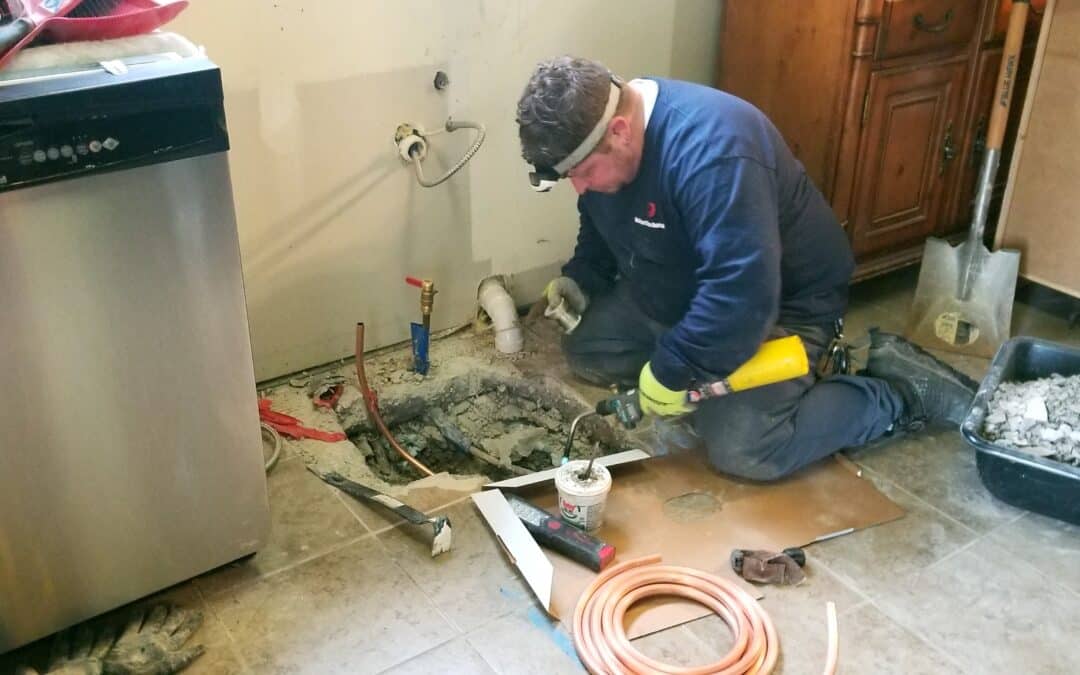Ever noticed that no matter how much you scrub, that white film seems permanently etched on your showerhead? Or maybe your once-powerful faucet barely trickles out a stream these days? If you live in Lexington, Kentucky, the culprit behind these frustrating experiences could be the very water flowing through your pipes: hard water.
Lexington, like many other areas, has naturally hard water. This might not sound like a big deal, but over time, hard water can wreak havoc on your plumbing system and fixtures. Let’s delve deeper into the science behind hard water, how it affects your home, and explore solutions to keep your pipes flowing freely.
The Culprit: Understanding Hard Water In Lexington
Hard water contains high levels of dissolved minerals, primarily calcium and magnesium. These minerals are picked up as water travels through underground rocks and deposits. While generally safe to drink, the high mineral content can cause problems in your home.
Water hardness is measured in grains per gallon (GPG). The higher the GPG, the harder the water. Lexington’s water typically falls in the “moderately hard” range (around 8-12 GPG).
The Downside: How Hard Water Clogs Pipes And Fixtures
The biggest issue with hard water is scale buildup. As hard water travels through your pipes, the minerals come out of suspension and cling to the inner surfaces. This scale buildup gradually narrows the pipe diameter, reducing water pressure and eventually leading to clogs. Read Plumbers Guide to Water Heater Maintenance to learn more.
Here’s how hard water can specifically impact your plumbing:
- Clogged showerheads and faucets: The tiny holes in showerheads and faucet aerators are prime targets for scale buildup, resulting in frustratingly weak water flow.
- Reduced water pressure: Scale buildup throughout your pipes restricts water flow, leading to a noticeable drop in pressure across your entire home.
- Premature appliance failure: Hard water buildup can damage the internal components of dishwashers, washing machines, and water heaters, shortening their lifespan.
- Difficulty cleaning soap scum and mineral deposits: The minerals in hard water react with soap, creating a filmy residue that’s notoriously difficult to remove from surfaces like bathtubs and sinks.
Solutions For Lexington’s Hard Water Woes
Don’t despair! There are ways to combat hard water and keep your plumbing system functioning smoothly. Here’s a two-pronged approach: prevention and addressing existing problems.
Prevention Is Key
- Regular cleaning: Make a habit of cleaning your showerheads and faucets with a vinegar solution to remove accumulated scale. Simply soak the detachable parts in white vinegar for a few hours, then scrub and rinse.
- Maintaining water heater temperature: High water heater temperatures can accelerate scale buildup. Setting your water heater to around 120°F helps maintain efficiency and minimize scale formation.
Addressing Existing Clogs
- DIY methods: For minor clogs in showerheads and faucets, the vinegar cleaning method mentioned earlier can be effective.
- When to call a plumber: Extensive clogs, especially those affecting multiple fixtures or causing low water pressure throughout the house, require professional attention. Don’t hesitate to call a reputable plumbing service in Lexington like Hubbard Mechanical. Their experienced Plumbers Lexington KY can diagnose the problem, clear stubborn clogs, and ensure your plumbing system is functioning optimally.
Long-Term Solutions
- Water softeners: These devices remove calcium and magnesium from your water supply, preventing scale buildup throughout your home. Water softeners require regular maintenance, but they can significantly improve the lifespan of your pipes and appliances.
- Salt-based vs. salt-free softeners: Salt-based softeners are the most common type and are highly effective. However, they require refilling with salt periodically. Salt-free softeners use a different technology and don’t require salt, but they may not be as effective for very hard water.
Living With Hard Water In Lexington: Tips And Tricks
While a water softener is a great long-term solution, there are other ways to adapt to Lexington’s hard water:
- Use the right cleaning products: Look for cleaning products formulated for hard water. These products are more effective at cutting through mineral deposits and soap scum.
- Choose appliances with features for hard water: Many dishwashers and washing machines offer features specifically designed for hard water. Look for models with built-in softeners or adjustable settings.
- Extend the lifespan of fixtures: Regular cleaning and maintenance of your faucets, showerheads, and other fixtures can help prevent premature wear and tear caused by hard water buildup.
Conclusion
Understanding the challenges of hard water can empower you to take action and protect your plumbing system. By implementing preventive measures, tackling existing problems with professional help from Plumbers Lexington KY like Hubbard Mechanical, and considering long-term solutions like water softeners, you can ensure your Lexington home has a constant flow of clean, soft water. Remember, addressing hard water issues not only prevents frustrating clogs and appliance breakdowns but also extends the lifespan of your plumbing system, saving you money in the long run.
Don’t wait until a major clog brings your plumbing system to a standstill. Take action today! Schedule a consultation with a qualified Lexington plumber to assess your needs. If DIY cleaning isn’t enough, consider installing a water softener to enjoy the benefits of soft water throughout your entire home.
For expert advice and plumbing services in Lexington, contact Hubbard Mechanical. Their team of licensed professionals is equipped to handle all your hard water challenges, from routine maintenance to complex repairs and water softener installations.
Bonus Tip
Check your local water authority’s website for information on the specific hardness level of your area’s water supply. This knowledge can help you determine the best course of action for your home.
This concludes our exploration of Lexington’s hard water and the solutions available. By following these tips and taking proactive measures, you can keep your pipes flowing freely and enjoy the many benefits of soft water in your Lexington home.
Frequently Asked Questions (FAQ’s)
Here are some frequently asked questions about hard water in Lexington:
How can I tell if I have hard water?
The most obvious sign of hard water is soap scum buildup on surfaces like bathtubs and sinks. You might also experience difficulty lathering soap during showers or notice white mineral deposits around faucets and showerheads. Additionally, if you have repeatedly clogged shower heads or faucets, and your water pressure seems low throughout the house, hard water could be the culprit.
Is hard water safe to drink?
Yes, hard water is generally safe to drink. In fact, the minerals present in hard water can even be beneficial for health. However, some people with sensitive skin may find hard water drying or irritating.
Are there any health benefits to using a water softener?
While the primary benefit of a water softener is improved plumbing and appliance efficiency, some studies suggest softened water may reduce the risk of certain skin conditions like eczema. Additionally, softer water can make soap and shampoo lather more easily, potentially leading to less soap usage and potential cost savings on cleaning products.
I’m considering a water softener, but I’m worried about maintenance. How much upkeep do they require?
Salt-based water softeners, the most common type, require refilling with salt periodically. The frequency depends on your water usage and hardness level. Salt-free softeners generally require less maintenance, but they may not be as effective for very hard water.
Should I get a plumber to install a water softener?
While some water softeners are marketed for DIY installation, it’s generally recommended to hire a licensed plumber. Plumbers Lexington KY have the expertise to ensure the softener is properly sized for your home’s needs, installed correctly to avoid leaks, and can answer any questions you may have about operation and maintenance.



Recent Comments